Q&A: Sustainability Leaders
Design Insider announced earlier this year that we would dedicate a selection of articles predominantly focusing on the area of Sustainability. Within this new series of article’s, Design Insider will be following The BCFA’s members-only event – an event which brings sustainability leaders together, to discuss ways in which we can all help combat the environmental issues occurring. With this, we will provide exciting Q&A’s with industry experts in sustainability that have spoken at the BCFA event(s).
For our first Q&A, we sat down with Lee Ness, the General Manager of Global Upholstery Solutions and a leader for Sustainability to find out more about his journey…
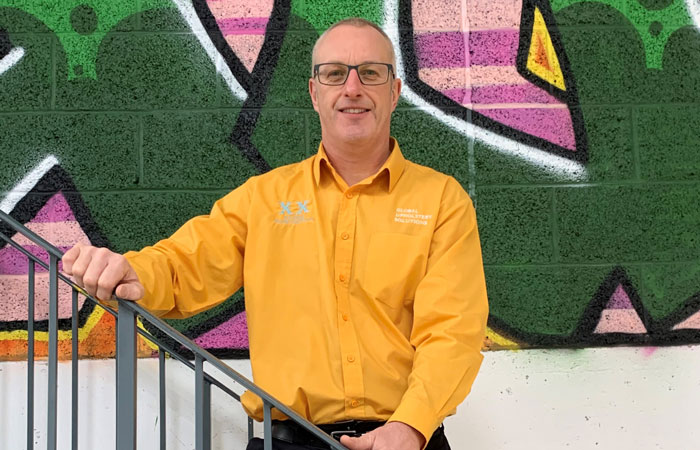
Please could you introduce yourself and Global Upholstery Solutions?
My name is Lee Ness and I am the General Manager of Global Upholstery Solutions Limited. I am Chartered Engineer and I have worked for the Stannah family for 26 years. Global Upholstery Solutions is a Hampshire Upholstery business which has a unique heritage – as an upholstery business that stretches back 40 years and part of the Stannah group that can trace its roots back over 150 years. We do not manufacture any parts to sell for ourselves, we provide a commercial upholstery service to other businesses. This means we are completely focused on our business customers and their needs. We can deliver all aspects of upholstery including frame manufacture.
Tell us a bit about how Greta Thunberg acts as an imaginary friend to GUSL?
Greta Thunberg is an inspirational figure as an environmental activist and a role model to the rest if us. One of the most distinctive reasons that she makes a good ‘imaginary friend’ sitting in judgement over our efforts is that anyone who has read about her will know that we need to make fundamental changes and she is unflinching and uncompromising. When we test our initiatives against our imaginary Greta, we know that while we are making good progress, it won’t measure up and it pushes us to do more.
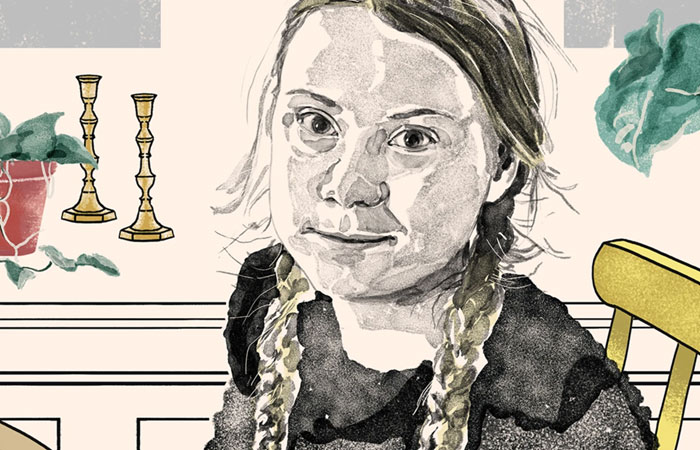
In your opinion, is recycling a social expectation now?
I hear comments about why school kids shouldn’t be allowed to strike and about how they can only be listened to if they give up mobile phones and computers etc. This is the height of arrogance by our generation. I think activism by young people is making a real contribution to changing the narrative on climate change, but the main agent for change will be legislation, in some form. Take the smoking ban. I remember meals in restaurants with my in-laws where they smoked for every bit of the time that didn’t involve the actual eating, even though my wife and I are non-smokers. Nothing changed until the law changed. Now, when I tell my grown-up kids about it, they can’t believe it. They think it is disgusting. I think the next generation, Greta Thunberg’s generation, will be the same with everything related to Sustainability. Sending things to landfill and single use plastics will be the equivalent of drink driving, or smoking in restaurants. They will be incredulous that we were so blasé about the environment. It took legislation to get people moving on plastic carrier bags. Now, I’d rather learn to juggle than buy a single use carrier bag (because I’ve forgotten my bag for life – again!). Recycling is the current, most recent social norm I think, but I think using recycled materials or sustainable ones at the very least will become the expected norm within a few years and will be followed within the current generation by products built for life instead of being disposable. This is why our design agency blackswan is working on concepts for remanufacturable furniture right now.
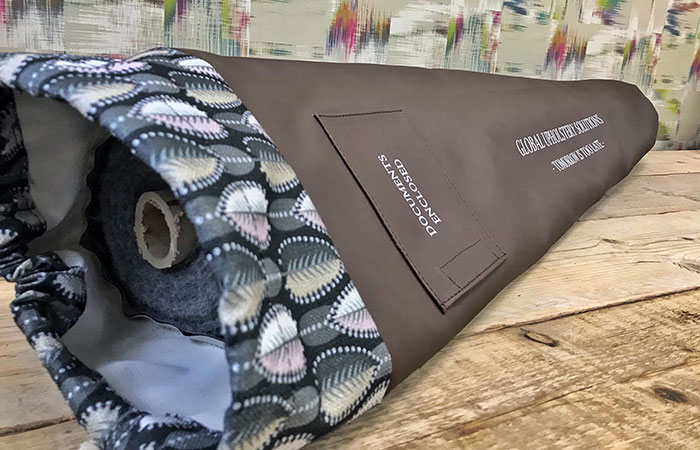
What are the main ways factories like yours can save on energy usage?
Lighting and Heating are the obvious contributors. Equipment selection is one element – low power LED lights, closer task lighting are examples. In one of our factories we have smart lighting that responds to the light level from the ambient light, plus movement underneath them plus the time of day to make sure the light is only there when it is required. Obviously not having the space heaters set to ‘furnace’ is also a help! Stopping heat getting out of the building, especially in a factory environment with deliveries and shipments coming in and out is a challenge but fast roller shutters help. Additionally, for the energy supply, we have identified a Green Energy tariff for both gas and electricity with SSE. This means all SSE Green Gas is 100% renewable and produced from sources such as agricultural materials, along with food waste and wastewater treatment. SSE Green Electricity is 100% renewable electricity, generated by wind and hydro assets. It means we aren’t just doing a small percentage of sustainable energy in the way we would if we had our own solar panels, we are using 100% sustainable energy.
Single use plastic is a big part of any business, how did you minimise your plastic use?
As we don’t make products for ourselves, we can’t simply change away from single use plastics on our own. We did find we were using plastic bags for transferring products around our own factory which weren’t quite single use, but they were close enough. We immediately eliminated these by replacing transport bags with sewn bags made from excess fabric. They had the added benefit of being colour coded so it has actually improved our process. With suppliers and customers the key is to give them an option that works for them. Our Materials Manager is key to this and so she works closely with suppliers first to prevent them using single use plastics in deliveries to us (we are introducing bigger reusable ‘bags’ for our suppliers) but also working with various suppliers on recycled products and sustainable packaging – such as carboard replacements for bubble wrap, recycled paper bags etc. These initiatives will only work if the alternative is viable for the customer. It is important to give them an option that works for them, not to try and get them to compromise.
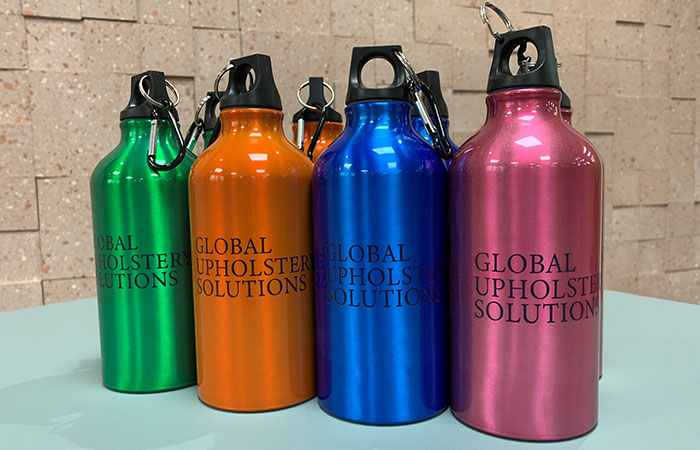
What is the best advice you can give to a company who are just about to start their journey of sustainability?
Be demanding of yourselves. Don’t accept that things can’t be done. There are people around, especially in groups like the BCFA, that are tackling the same problems and are happy to help. We learned from the Sustainability Forum about a bag that is made from a combination of recycled material and plant based material. The important feature is that you can still see through it – which is one of the objections to the cardboard and paper wraps. This may help us convert more customers to sustainable packaging solutions so we are following that up. Just because we don’t know the solution, doesn’t mean it isn’t out there. Ask yourself – What would Great Thunberg do?
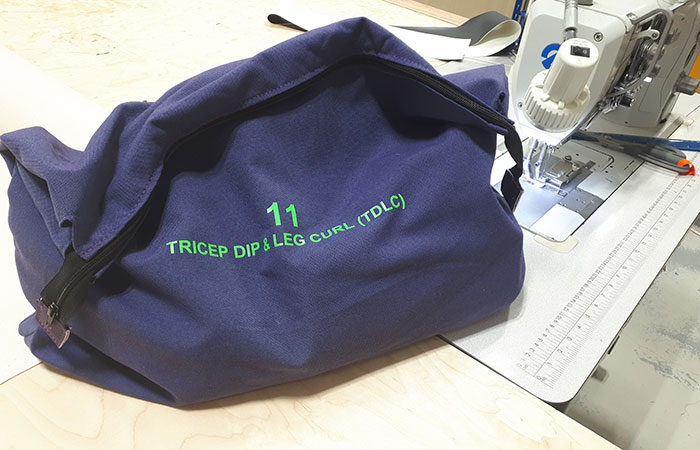
We certainly have learned how we can help the environment through Lee Ness’ expertise. To read more of our article’s about sustainability, click here.




